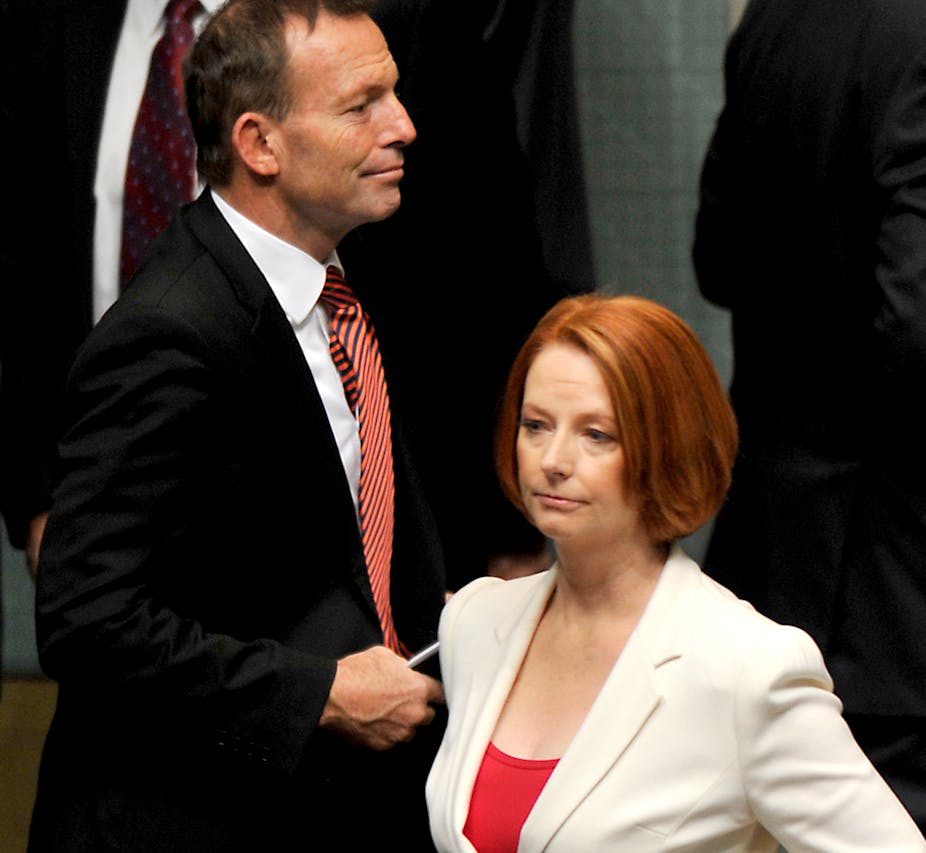Imagine a country in which politics is not a struggle among ambitious individuals for power, but the community’s way of resolving conflicts and advancing its common interests.
Voters are well-educated and follow public affairs seriously. Citizens consider one another’s opinions and are not rusted-on partisans.
Politicians assume a knowledgeable and intelligent public who can understand complexity. Politicians campaign honestly; they acknowledge drawbacks and objections, they don’t use arguments they know are unsound.
Political parties have many volunteer members and take them seriously. Party members listen to one another, ready to be influenced by argument.
In political life there is good will, personal rivalries and resentments are kept under control, people can change their mind without humiliation.
Why isn’t Australia more like this?
Obviously I’m not describing Australia, or in fact any country. But we need our country to strive for this kind of more adult, more reasonable, and more intelligent politics.
Australia faces a problematic future. Climate change may call for great adjustments. The “Dutch disease” may infect our economy. International relations will become more complex; loyalty to the US and to Israel won’t take Australia much further.
If we don’t have a better kind of politics, how can we even begin to tackle these problems?
Dumbed-down electioneering
Our politicians won’t do better unless our political institutions improve. One of the key weaknesses in our political system is that the House that decides government is based on single-member constituencies. There are, therefore, safe seats and marginal seats.
Safe seats provide patronage that feeds party factionalism. Marginal seat campaigns run by political professionals target a relatively small number of electors, many of whom do not seriously follow public affairs or politics.
Because campaigns target that audience, policies are simplified to slogans, difficult argument and explanation is avoided, politicians are careful not to say anything to occasion a smear campaign or a fear campaign, leaders seem not to stand for anything and won’t fight for anything.
Reforming the electoral system
So how do we help fix this fundamental flaw?
One possibility is the Hare-Clark-Robson system in Tasmania and the ACT. In Hare-Clark there are no safe or marginal seats; every vote counts, campaigns have to address the whole electorate.
With Robson rotation the votes of party supporters who have no preference among its candidates go to the candidates equally, and voters who follow politics and do have a preference decide which of the party’s candidates get elected. In effect, a “primary” is built into the election itself.
Non-performing politicians can be weeded out, promising newcomers can be voted in, and there is a steady selective pressure to improve candidate quality. Dissatisfied electors do not have to wipe out the government party to get rid of the politicians responsible for their dissatisfaction; they can transfer their vote from those politicians to others of the same party, if they wish.
In such a system the result will often be coalition or minority government. But this is not a bad thing, provided an early election can be called if government and assembly are deadlocked. (The recent US debt-ceiling crisis illustrates the vital importance of that feature of the Parliamentary system.)
The Australian Senate could easily have optional preferential voting and Robson rotation, but the House of Representatives will continue to be elected in single-member constituencies.
Can that system be improved?
Robson rotation in printing Representatives ballot papers would allow each party to nominate more than one candidate even for safe single-member seats.
This would give the benefit of primaries without the drawbacks of the separate primaries of US politics. Even in safe seats there would be a role for party supporters, and election campaigns would be addressed to all electors, not just those without firm party allegiances. A seat might be safe for the party but not for the member. Factional support could not confer a “job for life”.
Reforming our political parties
Patronage corrodes our parties. Politicians’ staff should be drawn from the public service, or they should be selected by party committees using objective criteria, setting aside factional considerations.
“Show and tell” and similar schemes reinforce the patronage system. Recently in the election of Liberal Party president, we saw Tony Abbott showing his ballot paper for Alan Stockdale.
The Chartists demanded the secret ballot so that voters could choose the best candidate free from bribery and intimidation. In our parties, bribery and intimidation takes the form of faction-controlled access to or exclusion from jobs, such as safe seats or high positions on the Senate list. To reduce factionalism, ballots held within the parties should be genuinely secret.
Unless factionalism is reined in, people who don’t seek a job from politics will not join or remain active in political parties. Why belong to an organisation if your contributions and opinions count for nothing?
Societal change
Commercialism is undermining journalism. We could have a media levy, distributed in accordance with a performance assessment made by voters.
Educational institutions need strengthening. Universities should not become simply adjuncts to the economy, but should encourage study of science, philosophy, religion, history, foreign languages, literature and social science. All these are relevant to political judgment, indeed to better living.
Supplements to the basic parliamentary process may be useful. Former Prime Minister, Bob Hawke’s summits were a good idea. Tony Abbott’s proposal for a plebiscite on the Carbon Tax should have been agreed to (with a choice between the government’s plan and his).
“Deliberative polling” should become a regular institution. MPs need to know that there are people listening to them attentively. There could be a kind of Parliamentary jury, a panel of citizens who listen to Parliamentary debate, meet with members of Parliament, and give a report to the public on Parliament’s performance.
We need our politicians to do better, and that needs improvement in our institutions and practices.


